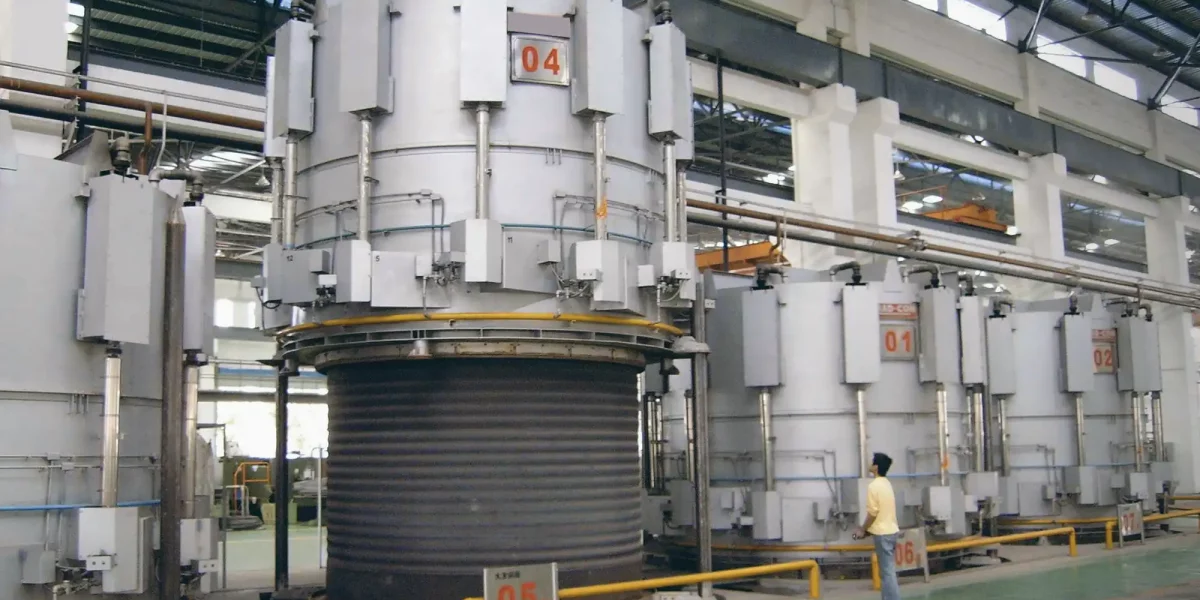
In the high-stakes world of aerospace engineering, where precision, durability, and safety are paramount, the role of advanced heat treatment systems cannot be overstated. At the heart of this critical process lies the industrial furnace—a powerhouse that transforms raw materials into aerospace-grade components. Advanced furnaces are central to aerospace innovation and performance, from strengthening turbine blades to heat-treating landing gear.
Why Aerospace Demands Precision Heat Treatment
Aerospace materials, particularly superalloys, titanium, and high-grade steels, require meticulous heat treatment to achieve desired mechanical properties. Each aircraft component must endure extreme thermal stress, mechanical strain, and high-pressure environments. In this context, the performance of furnaces used in their manufacturing directly influences:
- The structural integrity of components
- Resistance to fatigue and thermal shock
- Lifespan and operational safety
Without advanced furnaces, achieving uniform temperature distribution, controlled atmospheres, and repeatable cycles becomes nearly impossible, jeopardizing quality and compliance.
Types of Furnaces Used in Aerospace Manufacturing
Modern aerospace engineering utilizes a range of custom-designed furnaces, each catering to a specific process:
- Vacuum Furnaces: Ensure contamination-free heat treatment for turbine blades and structural components.
- Drop–bottom quench Furnaces are ideal for solution treatment and rapid quenching of aluminium parts, such as aircraft skins and frames.
- Bell Annealing Furnaces – Used for precise stress relief and recrystallization of aerospace metals.
Each of these furnaces must be capable of meeting NADCAP standards, ensuring traceability, repeatability, and aerospace-grade quality.
The Importance of Automation and Control Systems
What separates conventional furnaces from aerospace-ready systems is intelligent automation. Programmable logic controllers (PLCs), SCADA-based interfaces, and real-time monitoring are essential for:
- Maintaining critical thermal profiles
- Documenting process parameters for audits
- Minimizing human error and downtime
Modern aerospace furnaces are also integrated with Industry 4.0 capabilities, enabling predictive maintenance and performance analytics.
Precons’ Role in Supporting Aerospace Furnace Operations
While furnace manufacturing is critical, the calibration, validation, and environmental control systems surrounding them are equally important—this is where Precons makes a profound difference.
Precons specializes in cleanroom validation, temperature mapping, airflow system integration, and equipment calibration. In aerospace manufacturing environments, Precons ensures:
- Precise temperature mapping of furnaces and ovens
- Validation of controlled environments for furnace operations
- Periodic calibration of Magnehelic gauges, thermocouples, and sensors
- Design and execution of clean air zones around heat treatment areas
By ensuring that furnaces operate within critical tolerances and environmental conditions, Precons supports manufacturers in meeting aerospace quality standards and compliance benchmarks like AS9100 and ISO 17025.
Emerging Trends: What’s Next for Aerospace Furnaces?
Green Furnaces: Eco-friendly burners and heat recovery systems to lower emissions.
AI in Heat Treatment: Predictive control for faster and smarter adjustments.
Advanced Materials: Furnaces adapted for newer aerospace composites and alloys.
As aircraft systems become lighter, faster, and more efficient, the furnaces that support their development must also evolve.
Conclusion
The role of advanced furnaces in aerospace engineering is foundational. From material hardening to structural optimization, they are the backbone of aerospace innovation. With players like Precons ensuring operational excellence around these systems, aerospace manufacturers gain a competitive edge in quality, compliance, and efficiency.
Ready to enhance your aerospace heat treatment setup? Partner with Precons for expert validation, mapping, and calibration support.
Additional Resources
• Product Brochures: Explore detailed specifications and features of Precons’ aerospace-focused products.
• Technical Papers: Dive into in-depth analyses of thermal processing techniques and their applications in aerospace manufacturing.
• Contact Us: Contact Precons’ expert team for customized solutions tailored to your seeds.